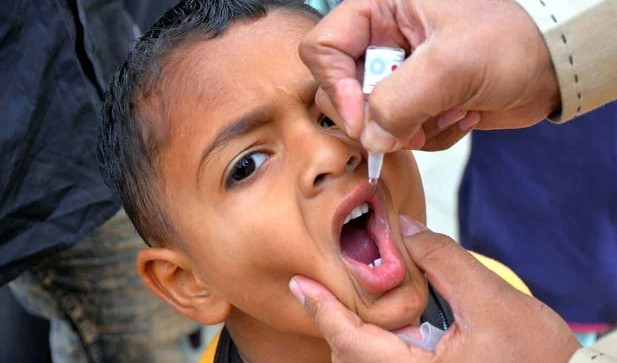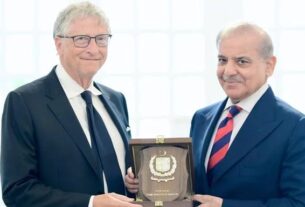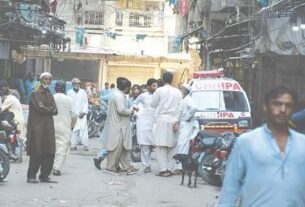1 Anti Polio
Pakistan Starts Large-Scale Nationwide Polio Eradication Campaign for 2024 The goal of Pakistan’s 2024 anti-polio campaign is to protect children from polio in every province and district, and it will begin Monday. With the help of the World Health Organization (WHO) and other medical organizations, this campaign aims to eradicate polio permanently, focusing on both urban and rural areas for optimal coverage.
2. Pakistan Achievements
Understanding Pakistan’s past fighting polio efforts is vital for appreciating the 2024 anti-polio campaign. The nation has run a number of efforts throughout the years with the goal of lowering and eventually completely eliminating polio cases.
a. Early Efforts and Setbacks:
Early efforts encountered challenges such as inadequate training, a lack of funding, and public opposition brought on by misunderstandings.
b. Progress and Accomplishments:
Thanks to extensive vaccination campaigns and better healthcare facilities, coordinated efforts and more money have considerably decreased the number of polio cases in Pakistan during the 1990s.
c. Recent Developments:
Over the past ten years, more extensive and successful programs have been made possible by the government’s heightened emphasis on public health as well as assistance from international health organizations.
3 Campaign in 2024
In addition to preventing polio in children, the 2024 campaign demonstrates a wider dedication to public health. An important step toward the country’s eventual polio-free status is this anti-polio campaign.
Principal Aims of the 2024 Campaign
a. Focusing on Every High-Risk Area:
concentrating on places where outbreaks have occurred in the past to guarantee that no child in these areas is left unvaccinated.
b. Maintaining Immunity Nationwide:
Building a strong barrier of immunity among the populace to stop epidemics in the future.
c. Building Public Confidence in Vaccines:
The program seeks to boost vaccine acceptability by openness, instruction, and trustworthy immunization services.
4. Challenges and Solutions
One of the most difficult aspects of any national health program is reaching out to isolated and vulnerable areas. From logistical challenges to public mistrust in some places, the government and healthcare professionals face several challenges.
Principal Difficulties
a. Geographical Barriers:
It can be challenging for immunization teams to reach all children in remote areas since there is sometimes restricted access to transportation.
b. Misinformation and Distrust:
Education and community involvement are essential since vaccine reluctance endures in certain places because of misconceptions and misunderstandings.
c. Security Issues:
Healthcare personnel need extra protection in certain regions due to elevated security hazards.
Ways to Workaround Restrictions
a. Community-Led Efforts:
Collaborating with regional authorities to debunk myths, inform the public, and promote confidence in medical professionals.
b. Innovative Transport Solutions:
Getting to difficult-to-reach places with motorbikes, boats, and in extreme situations, drones.
Trained Security Teams:
Enlisting law enforcement to ensure that immunization teams may travel safely through high-risk areas.
5. Pakistan Free of Polio
In order to eradicate polio, a large-scale partnership with both domestic and foreign partners is necessary. The effectiveness of these collaborations is best demonstrated by the 2024 campaign.
Important Collaborations
a. International Assistance:
UNICEF and the World Health Organization (WHO) have been crucial in offering training, resources, and strategic assistance.
b. Government and NGOs:
To improve logistics, raise awareness, and provide on-the-ground assistance, local groups collaborate with government organizations.
c. Private Sector Contributions:
6. Support, digital resources, and infrastructure assistance.
Future Generations’ Health Effects of National Polio Vaccination
The health effects of polio vaccination are extensive. In addition to protecting specific kids, it also makes the community as a whole healthier.
Advantages of Vaccination Against Polio
a. Immediate Protection:
By ensuring that youngsters become resistant to polio, vaccination helps to prevent permanent disability.
b. Community Immunity:
The probability of an outbreak falls when a sufficient number of youngsters receive vaccinations, even shielding those who might not receive them.
c. More Healthful Workforce
Pakistan can develop a workforce that is more resilient and robust by safeguarding the next generation from disabilities.
7. Promote Immunization and Fight False Information
Public education is a vital part of the fight against polio. By clearing up common misconceptions, education initiatives that are clear and consistent help to reduce vaccine hesitancy.
Public Education Initiatives
a.Workshops & Seminars:
Medical professionals host community activities to inform parents about the safety of vaccines.
b. School Outreach:
Young pupils are included in school activities so they can inform their families about what they have learned about polio.
c. Media Campaigns:
By debunking myths about polio vaccines, fact-based information is used on TV, radio, and social media platforms to support the campaign.
8. Prevention of Pakistan
a. Pakistan
One of the few nations where polio is still endemic is Pakistan. Nonetheless, examining successful eradication cases from around the world offers insightful information.
Success Stories in the Global Eradication of Polio
b. India:
The country successfully eradicated polio through a comprehensive eradication program that included widespread vaccination programs, intensive monitoring, and awareness campaigns.
c . Africa:
By collaborating closely with local and foreign partners to educate communities and deliver consistent immunization, African countries overcame comparable obstacles.
9. Technological Advancements
The delivery of healthcare, particularly polio vaccine campaigns, is changing due to modern technology.
Creative Approaches
a. Digital Tracking:
To ensure coverage and avoid missing doses, mobile apps assist in tracking vaccinated children.
b. Cold Chain Management:
Vaccines are kept effective during transportation to far-flung locations thanks to sophisticated refrigeration technologies.
c. Data analytics:
By using analytics tools, health professionals may determine high-risk locations, evaluate the effectiveness of campaigns, and make data-driven decisions.
10. Being Ready for a Pakistan Free of Polio
Even when an area has been proclaimed polio-free, it still takes consistent work to achieve a polio-free status. Re-emergence is prevented by frequent vaccination and ongoing surveillance.
Important Measures to Maintain Progress in Routine Immunization:
Making sure polio vaccinations are a regular component of children’s medical treatment.
a. Continuous Surveillance:
keeping an eye on communities to quickly identify any new instances, particularly in high-risk areas.
b. Government
Government support for public health initiatives includes financing for healthcare and regulations that strengthen immunization campaigns.
1. What is Pakistan’s polio drop schedule?
How can polio be avoided? All infants receive oral drops of the Oral Polio Virus Vaccine (OPV) at birth, as well as at six, ten, and fourteen weeks of age.
2. When did Pakistan introduce the polio vaccine?
Official eradication efforts began in 1994, but the nation’s polio vaccination campaign began in 1974. Even though more than 100 vaccination rounds have been administered in the last ten years, the infection is still widespread. In 2014, Pakistan had the most polio cases worldwide.
3. When does polio start?
Although polio has afflicted children for thousands of years, it wasn’t until 1789 that British physician Michael Underwood provided the first documented clinical description of the disease, and German physician Jakob Heine officially recognized it as a disease in 1840.
4. Is polio removed in Pakistan?
According to the World Health Organization (WHO), Pakistan is one of just two nations in the world where polio is still prevalent, the other being neighboring Afghanistan.
Also Read: Saudi Arabia refuses Interest recognition Israel without Palestinian




